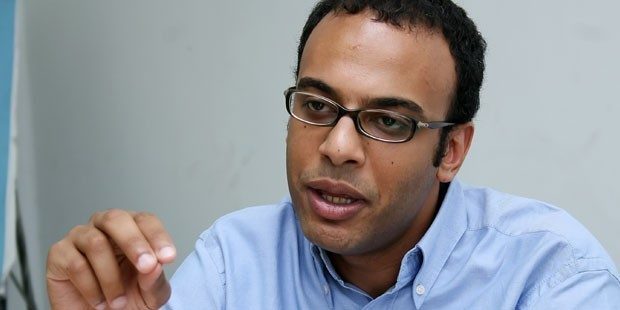
The executive director of EIPR, Hossam Bahgat, has been convicted for a tweet criticizing election fraud and handed a ten thousand Egyptian pound ($635) fine.
The court found Hossam Bahgat, the executive director of the Egyptian Initiative for Personal Rights (EIPR), guilty of “insulting a state body” and “spreading false news” but cleared him of “using social media to commit a crime.” Bahgat’s lawyers said they may appeal the verdict.
The trial of Hossam Bahgat over bogus false news charges concluded on November 2, where the court was set to announce its verdict on November 29.
In June, prosecutors opened a criminal investigation into Bahgat over a tweet he posted last year criticizing the (since deceased) former head of the National Elections Authority, Lasheen Ibrahim, for election fraud.
Prosecutors referred Bahgat to trial the next month on charges of “insulting a state body, spreading false rumors stating that the election results were rigged, and using social media to commit crimes.” The charges carry a sentence of up to three years in prison and a fine of up to 300,000 Egyptian pounds ($19,000).
During yesterday’s hearing, Bahgat’s defense team demonstrated the lack of evidence against their client. They also noted that the laws under which he has been charged are unconstitutional as they violate his freedom of expression—a freedom that is also highlighted in the recently released National Strategy for Human Rights.
In addition to the charges against Bahgat personally, EIPR is also still under investigation in Case 173/2011. The Biden administration has expressed to Egyptian officials its “strong belief that individuals such as Hossam Bahgat should not be targeted for expressing their views peacefully,” while closing Case 173 is reported to be one of the conditions for the administration’s release of $130 million in military assistance to Egypt.
Amnesty International repeated its call for authorities to “drop all charges and stop [the] crackdown on rights defenders,” while the Observatory for the Protection of Human Rights Defenders urged them to “put an end to any act of harassment, including at the judicial level, against Hossam Bahgat and to guarantee his right of a fair trial throughout all the proceedings against him.”
While Bahgat avoiding prison time is a relief given the regime’s ongoing crackdown on human rights defenders, his conviction violates his right to free expression. He also remains banned from traveling abroad and his assets are still frozen in connection with the decade-old Case 173.
Ahead of the verdict, several human rights organizations called on authorities to withdraw all the abusive charges against Bahgat, close Case 173, and lift their arbitrary travel bans and asset freezes. Representatives Gregory Meeks (D-NY) and Ro Khanna (D-CA) also called on Egypt to end its harassment of Bahgat.
Nor is Bahgat the only EIPR member targeted by the regime: Three of the organization’s senior staff—Gasser Abdel-Razek, Mohammed Basheer, and Karim Ennarah—briefly detained last year for meeting with foreign diplomats are still under travel bans and assets freezes as the charges against them have yet to be dropped.
Furthermore, EIPR researcher Patrick George Zaki is currently being tried in an emergency court over a 2019 article describing Copts’ daily hardships, following more than a year and a half of arbitrary detention during which he was subjected to torture. The next hearing in his case is scheduled for December 7.



